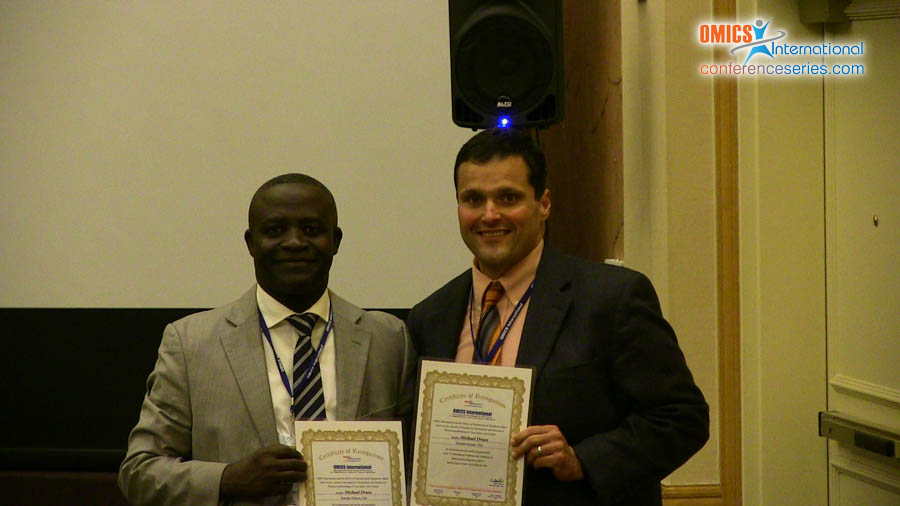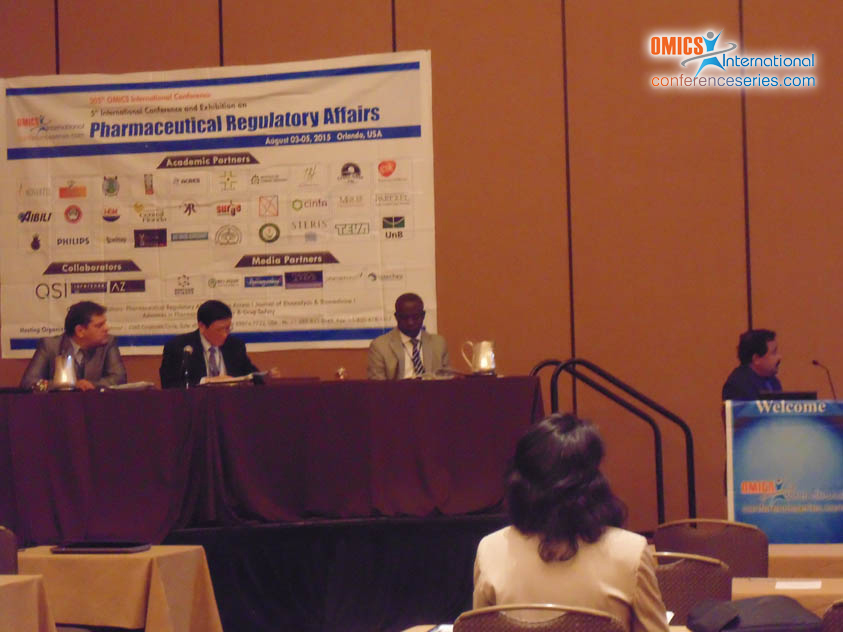
Avong
Avong, Institute of Human Virology, Nigeria
Title: The effectiveness of the spontaneous reporting system
Biography
Biography: Avong
Abstract
Background: Spontaneous reporting systems (SRS) as the United Kingdom Yellow Card Scheme for reporting suspected adverse drug reactions (ADRs), operate in most developed and developing countries. We tested the SRS in a national cohort of multi drug resistant tuberculosis (MDR-TB) patients in Nigeria. Methods: Using the Nigeria Yellow Form, we collected and analyzed suspected adverse drug reactions from MDR-TB patients undergoing the eight months intensive phase treatment. These patients were treated with a standard regimen, consisting of injectable Kanamycin, Amikacin or Capreomycin and oral Cycloserine, Levofl oxacin, Pyrazinamide, Prothionamide and Pyridoxine for at least eight months. Characteristics of AEs were documented and risk factors assessed. Results: We included 460 patients in the analysis: 62% were males; median age and weight were 33 years [Interquartile Range (IQR):28-42] and 51 kg (IQR: 45-59) respectively. Majority of the participants (44%) experienced AEs: four died of AEs associated conditions. Th e most commonly reported AEs were gastro-intestinal (n=100), neurological (n=75), ototoxic (n=72) and psychiatric (n=60). Ototoxic and psychiatric AEs were debilitating and required medical intervention and hearing aids. Most AEs occurred after 1-2 months of therapy; some treatment centers were twice as likely to report AEs compared with others, highlighting significant inconsistencies in reporting at different treatment centers. Patients with a higher body weight had an increased risk of experiencing AEs. No differences were observed in risk of AEs between HIV-infected and uninfected patients. Age was not significantly associated with AEs. Conclusion: The SRS proved effective at providing information on adverse drug reactions, which could aid post-marketing drug safety surveillance. Given its low cost, the SRS could be used in resource limited settings to detect, monitor and report ADRs, especially in public health initiatives like the anti-retroviral therapy programs.
Speaker Presentations
Speaker PPTs Click Here






